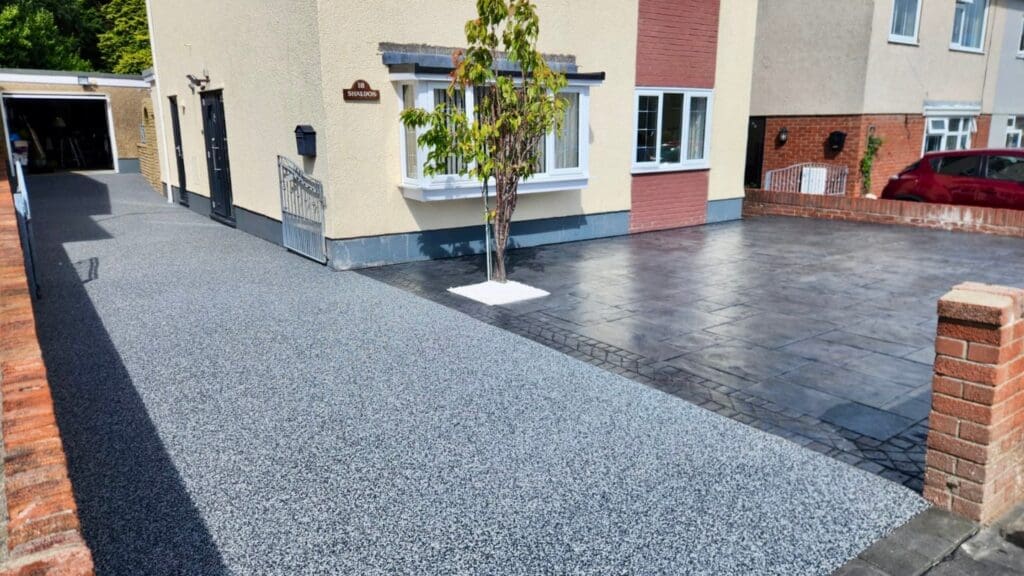Is Water a Problem for Resin Bound Surfacing?

Resin bound surfacing is a popular choice for both residential and commercial properties due to its durability and low-maintenance nature. However, a common concern among property owners is the potential damage caused by water. In this article, we will explore whether water is a problem for resin bound surfacing and discuss some measures to prevent water damage.
“Resin bound surfacing is typically made from a combination of aggregate stones and a resin binder. The resin acts as a protective barrier, protecting the aggregate from wear and tear. As a result, resin bound surfaces are known for their high strength and long-lasting properties.”
South Wales Driveways Team
Water Resistance and Durability
One of the key features of resin bound surfacing is its water resistance. The resin binder used in resin bound systems is designed to be impermeable, preventing water from entering the underlying substrate. This means that resin bound surfaces are highly resistant to water damage and can withstand prolonged exposure to rainfall.
Preventing Water Damage
While resin bound surfacing is known for its water resistance, it is still important to take measures to prevent water damage. Here are some tips to consider:
- Proper Installation: Ensure that resin bound surfacing is installed by experienced professionals who understand the proper techniques. Proper preparation, including adequate drainage, will help to prevent water accumulation and damage.
- Care and Maintenance: Regularly clean resin bound surfaces to remove dirt, debris, and any potential contaminants. This will help to keep the surface clean and free from potential damage.
- Protective Barriers: Consider installing protective barriers such as metal grids or drains around areas where water is likely to accumulate, such as patios, pool decks, or walkways. This will help to direct water away from the surface and prevent any pooling or flooding.
- Repair and Restoration: In the event that water damage does occur, it is important to promptly repair and restore the affected area. This may involve removing the damaged surface, repairing the underlying substrate, and reinstalling new resin bound aggregate.
- Regular Inspection: Regularly inspect the resin bound surface for any signs of damage or water infiltration. Catching issues early allows for prompt action and prevents further damage.
While water is not typically a problem for the durability and performance of resin bound surfacing, it is still important to take preventive measures to prevent water damage. By following proper installation techniques, maintaining the surface, and addressing any issues promptly, you can enjoy the beauty and durability of resin bound surfacing for years to come.
If you’re thinking of getting a new resin bound driveway or outdoor space at your property, or you have an issue with an existing resin bound surface, contact the team to discuss how we might be able to help.
 Posted by South Wales Resin Driveways
Posted by South Wales Resin Driveways- Posted in News
 Sep, 18, 2024
Sep, 18, 2024 Comments Off on Is Water a Problem for Resin Bound Surfacing?
Comments Off on Is Water a Problem for Resin Bound Surfacing?
Recent Posts
- Vuba Resin Landscaping Project in Neath 29 October 2024
- Our Tips for Looking After Your Resin Driveway During Winter 22 October 2024
- Does Resin Surfacing Fade Over Time? 1 October 2024
- Is Water a Problem for Resin Bound Surfacing? 18 September 2024
- What Bases Can Be Used for Resin Bond Surfacing? 28 August 2024

